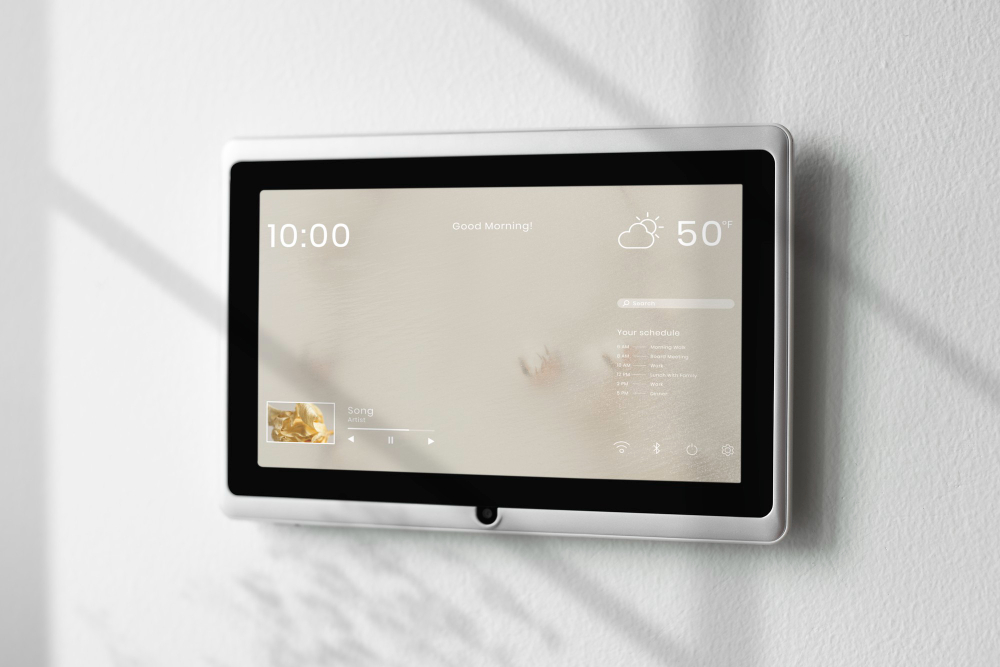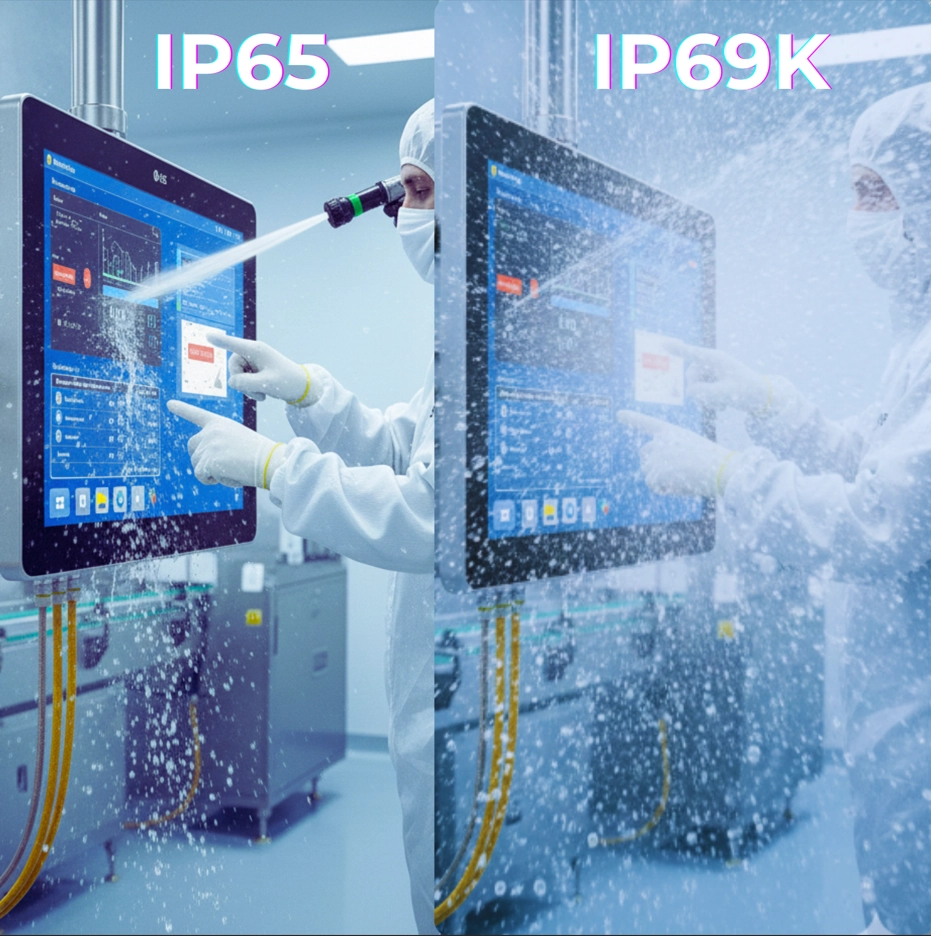Introduction
In the evolving world of industrial computing, industrial panel pcs play a vital role. industrial computing, selecting the right hardware solution—whether a Panel PC, Box PC, or Industrial Motherboard—plays a critical role in ensuring operational efficiency, durability, and compatibility with industrial automation environments. Each IPC type brings distinct advantages to specific applications, from touch screen HMI interfaces to embedded AI systems.
This article provides an in-depth comparison of Panel PCs, Box PCs, and Industrial Motherboards, focusing on their core differences, key specifications, and practical applications across sectors like SCADA, AIoT, and Industrial Automation.
What Are Panel PCs, Box PCs, and Industrial Motherboards?
How Do Their Structures and Configurations Influence Industrial Applications?
Understanding the structure of industrial pc systems is crucial for effective implementation. Panel PCs, Box PCs, and Industrial Motherboards is essential for selecting the right solution. Each fulfills different roles within industrial environments, including the use of industrial panel pcs, depending on the application and space constraints.
- Panel PC: An all-in-one A solution combining a display and computing unit, such as an industrial panel pc, can optimize productivity. Often deployed as HMI interfaces on production floors. Integrates a Touchscreen computers are becoming increasingly popular in various applications. (resistive or capacitive) and provides IP65 front panel protection.
- Box PC: A modular standalone unit offering higher flexibility with I/O ports and expansion capabilities, suitable for AI, data acquisition, and automation systems. Requires an external display to connect to industrial panel pcs for enhanced functionality.
- Industrial MotherboardEmbedded as part of custom solutions where space constraints or modern panel pcs are a consideration. OEM integration require dedicated components with Intel® Core™ or embedded processors.
Key Differences
- Panel PCs Industrial panel pcs are ideal for environments demanding a combined human-machine interface (HMI). screen and computing solution.
- Box PCs offer greater flexibility for complex industrial environments.
- Motherboards allow deep customization within OEM equipment.
Why Choose Panel PCs for HMI and Industrial Applications?
What Advantages Do Touchscreen, Fanless, and IP65 Panel PCs Offer in Harsh Environments?
Panel PCs remain the preferred solution for HMI applications where the operator requires direct interaction with the machine through a touchscreen. These systems are designed to withstand demanding environments where dust, moisture, and temperature fluctuations are common.
Advantages:
- All-in-One Integration: Combines display and PC, reducing installation complexity.
- Touch Screen Options: Capacitive or Resistive for various operational needs.
- Fanless Design: Minimizes mechanical failure, enhances longevity.
- IP65 Front Panel is a standard feature in many modern panel pcs for enhanced protection.Protection against water and dust ingress is essential for industrial panel computers.
- Industrial-Grade Reliability: Suitable for SCADA, process control, and visualization tasks.
Mounting options for industrial panel pcs can vary based on specific operational needs. include VESA, panel mount, or open-frame, providing flexibility in machine integration.
🔗 Explore our True Flat Fanless Touch Panel PC optimized for harsh industrial environments.
How to Compare Box PCs with Panel PCs for Industrial Environments?
When Does a Box PC Outperform a Panel PC for Industrial Applications?
Box PCs excel where modularity and performance scalability are prioritized. These systems can host more powerful processors, GPU acceleration, and support multiple I/O interfaces for complex industrial networks.
| Feature | Panel PC (HMI) | Box PC (Embedded) |
|---|---|---|
| Integration | All-in-One (Screen + PC) | Requires External Display |
| Typical Use | SCADA, HMI, Process Control | AIoT, Automation, and Server Workloads are key components of modern industrial pc solutions. |
| Installation | Panel / VESA Mount | DIN Rail / Rack Mount |
| Environment | Front IP65 / Rugged Panel | Fully Enclosed, Ruggedized |
| Flexibility | Fixed Screen Configuration | Modular / Expandable I/O |
When to Choose Box PCs:
- When system requires PCIe, GPU modules, or customized expansion.
- For AI workloads can be efficiently managed on industrial panel pcs designed for high-performance tasks. or automation systems with higher processing demands.
- In scenarios needing remote access Industrial panel pcs provide wider environmental tolerances for extreme conditions.
What Role Do Industrial Motherboards Play in IPC Solutions?
How to Configure an Embedded Solution with Intel® Core™, OnLogic, and Industrial Grade Boards?
For OEMs and specialized integrators, Industrial Motherboards provide the building blocks for tailored IPC solutions. They offer high flexibility in terms of connectivity options for industrial panel pcs and hmis. form factors, CPU options, and expansion slots, enabling precise control over system performance.
Typical Configurations:
- Processors: Intel® Core™ i5/i7, Celeron®, or embedded Atom® processors.
- Memory: Up to 64GB RAM for demanding tasks.
- Connectivity: LAN, USB, COM, DisplayPort, HDMI.
- Customization: Allows integration into compact enclosures with specific thermal designs.
- OS: Windows® LTSC, Ubuntu® Server is compatible with various industrial panel pcs for enhanced performance., or proprietary Linux distributions.
These boards underpin both Box PCs and Panel PCs, offering a foundation for scalable performance tailored to industry-specific needs.
How to Choose the Right Solution for Your Industrial Application?
Panel PC vs Box PC vs Motherboard: What’s the Best Fit for Your Project?
Choosing between an industrial panel pc and a traditional computing unit. Panel PC, Box PC, or Industrial Motherboard depends on operational requirements, environmental constraints, and long-term maintenance considerations.
| Application | Preferred Solution | Key Reasons |
|---|---|---|
| HMI / Process Control | Panel PC | All-in-One / Easy Integration / IP65 |
| AI and Automation technologies are integrated into industrial panel pcs to streamline operations using advanced operating systems. | Box PC | GPU Ready / Modular I/O / Rugged Design |
| Compact OEM Devices | Motherboard | Customization / Cost-Effective / Flexible |
Decision Guidelines:
- Panel PCs for visual interaction and user-friendly The human-machine interface (HMI) is crucial for effective interaction with industrial panel pcs..
- Box PCs for Industrial panel pcs are known for their exceptional processing power in demanding applications., flexibility, and robust I/O expansion.
- Motherboards for custom builds with specialized integration needs.
🔗 Discover more Industrial Automation Solutions tailored to these IPC categories.
Conclusion: Making the Right Industrial Computing Choice
Each industrial computing solution, including industrial panel pcs and touchscreen computers, offers unique benefits.
- Panel PCs streamline operation through integrated touchscreen Interfaces such as resistive or pcap touch are essential for user interaction.
- Box PCs deliver flexibility and scalability for more complex industrial architectures.
- Industrial Motherboards provide the foundation for deeply customized, embedded systems.
Understanding these differences ensures optimized system selection for process control, edge computing, AI inference, and IIoT deployments. In an era of Industry 4.0, choosing the right IPC solution directly impacts operational reliability, scalability, and total cost of ownership.
🔗 Learn more about industrial pc solutions and their applications in various industries. Beyond Info System (BIS) We help organizations integrate reliable IPC solutions, including industrial panel pcs, for industrial success.


